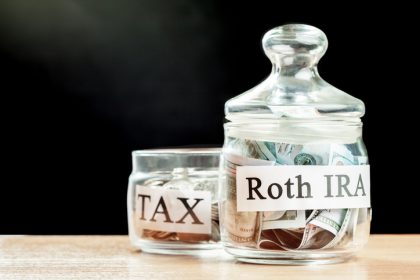Social Security benefits provide essential income for millions of Americans. However, there can be a reduction in benefits if your total income exceeds certain thresholds. Many retirees use rental income to supplement their retirement, but it interacts with Social Security differently than wages or self-employment income. Unlike wages from a job, the Social Security Administration generally considers rental income as passive income. This distinction matters significantly when calculating potential benefit reductions. However, the impact varies depending on how you manage your rental properties, your age and your total income.
Does Rental Income Count as Earnings for Social Security Benefits?
When planning for retirement, many people wonder if their rental income will factor into Social Security benefit calculations.
The short answer is no—Social Security does not use rental income to calculate your benefits. Social Security benefits are calculated based on your work history and the earnings on which you paid Social Security taxes.
There is an exception for landlords actively involved in property management. Some of your income might be considered self-employment income if you operate as a real estate professional and your rental activities qualify as a business rather than an investment. In this case, you would pay self-employment taxes, which include Social Security taxes. A portion of these payments could count toward your benefits.
Rental income does not affect the calculation of your Social Security benefits. However, it can impact the taxation of benefits you already receive. If your total income—calculated by adding your adjusted gross income, tax-free interest and half of your Social Security benefits—surpasses specific limits, you could owe taxes on up to 85% of your benefits. Rental income is part of your adjusted gross income and could push you over these thresholds.
When Can Rental Income Affect Social Security?

If you are actively involved in managing your rental properties, the IRS may classify your rental income differently. When you materially participate in rental activities by handling tenant issues, maintenance and day-to-day operations, this income could count as earned income instead of passive income. This distinction matters because earned income counts toward Social Security’s earnings test. This potentially reduces your benefits if you are collecting before full retirement age.
Some rental situations can trigger self-employment taxes. If you provide substantial services to tenants beyond basic property maintenance, such as regular cleaning, changing linens or offering concierge services, the IRS may view you as running a business rather than simply collecting passive rental income. In these cases, your rental income could affect your Social Security benefits through both earnings test limits and future benefit calculations.
The growing popularity of short-term rentals through platforms like Airbnb has created new Social Security considerations. When you frequently rent properties for short periods and provide significant services to guests, this activity may be classified as a hospitality business rather than traditional property rental. If reclassified as business income, it may become subject to self-employment taxes. It could also potentially impact Social Security benefits taken before reaching full retirement age.
What Is the Social Security Earnings Test?
The Social Security Earnings Test applies to individuals who claim retirement benefits before reaching their FRA and continue to work. In 2025, individuals who remain below FRA all year will see $1 in Social Security benefits reduced for every $2 of earnings above $23,400. For those who reach FRA during the year, the earnings limit rises to $62,160, and benefits are reduced by $1 for every $3 earned over that amount—though this applies only to income received before the month FRA is attained.
It’s important to note that the earnings test considers only earned income, such as wages and self-employment income. Rental income typically doesn’t count unless you provide substantial services to tenants, like regular cleaning or meal services.
How Rental Income Can Impact Supplemental Security Income (SSI)
Supplemental Security Income (SSI) provides financial support to elderly, blind or disabled individuals with limited income and resources. When you receive rental income, the SSA considers it unearned income. It may reduce your SSI benefits directly. The SSA has strict income limits, and exceeding these thresholds may reduce your monthly payments or even disqualify you from receiving benefits altogether.
The SSA counts rental income differently than other forms of income. It subtracts necessary property management expenses from your gross rental receipts. You can deduct expenses like mortgage interest, property taxes, utilities you pay for tenants, insurance premiums and maintenance costs. After these deductions, the remaining amount is what impacts your SSI benefits.
You must report rental income to the SSA promptly if you receive SSI. If you don’t report income changes, you may receive overpayments that you’ll have to repay. The SSA requires notification within 10 days after the end of the month in which the change occurred. Therefore, keeping detailed records of both rental income and related expenses is essential for accurate reporting.
How to Maximize Social Security Benefits
Knowing how to maximize Social Security can help improve your financial outlook in retirement. These key strategies can potentially help you do that.
Delay Claiming Until Age 70 if Possible
Each year you postpone claiming benefits beyond your full retirement age (up to age 70), your benefit amount increases by up to 8%. This permanent increase can substantially boost your retirement income and provide a more secure financial foundation.
Work for at Least 35 Years
Social Security calculates your benefits based on your highest 35 years of earnings. If you have fewer than 35 years of work history, zeros will replace the remaining years, lowering your benefit. Continuing to work, especially if you are earning more than in previous years, can replace lower-earning years in the calculation.
Coordinate Benefits With Your Spouse
Married couples have additional claiming strategies available. One approach is for the spouse with the higher income to postpone filing in order to increase their benefit, while the other spouse begins collecting sooner. This approach can optimize household income while ensuring the surviving spouse receives the highest possible survivor benefit.
Minimize Social Security Tax Liability
Bottom Line

Understanding how rental income affects your Social Security benefits is key for effective retirement planning. Rental income doesn’t directly reduce benefits, but it can have indirect effects based on your income and how the income is classified. For those under full retirement age receiving benefits while still working, rental income generally does not count toward the earnings test that might reduce your benefits. However, if you actively manage rental properties as a business rather than as passive investments, the IRS might classify this income differently.
Social Security Planning Tips
- Your full retirement age (FRA) depends on your birth year and affects how much you receive each month. Claiming before FRA reduces your benefit permanently, while delaying past FRA increases it by up to 8% annually until age 70. Understanding this timeline can help you decide when to file.
- A financial advisor who specializes in retirement planning can help you build an income strategy and decide when to claim Social Security. Finding a financial advisor doesn’t have to be hard. SmartAsset’s free tool matches you with vetted financial advisors who serve your area, and you can have a free introductory call with your advisor matches to decide which one you feel is right for you. If you’re ready to find an advisor who can help you achieve your financial goals, get started now.
Photo credit: ©iStock.com/g-stockstudio, ©iStock.com/fizkes, ©iStock.com/Prostock-Studio
Read the full article here
















